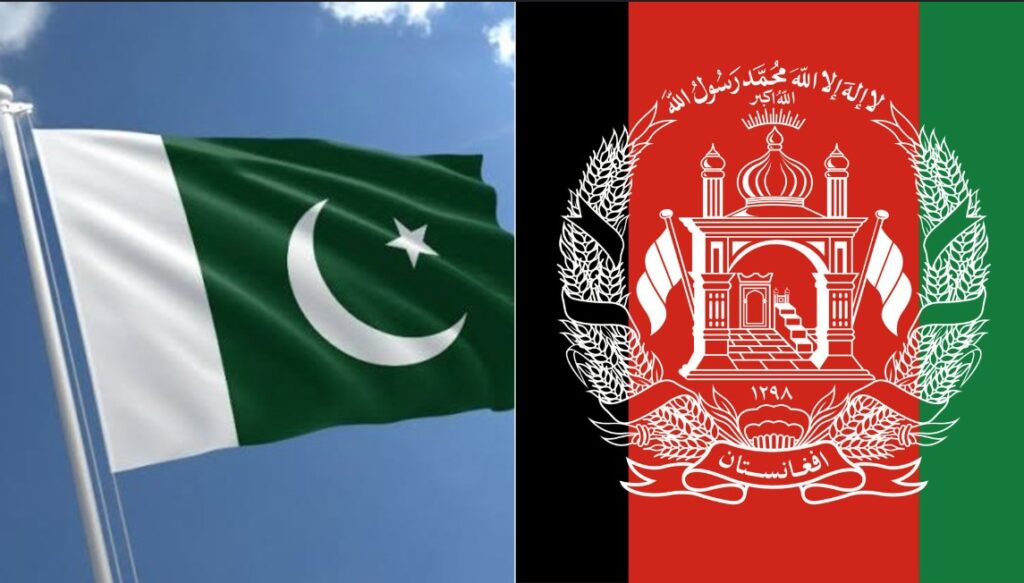By Jabbar Khan

Islamabad: Pakistan and Afghanistan on Friday agreed to extend their temporary ceasefire following a week of deadly cross-border clashes that killed dozens, including 23 Pakistani soldiers and more than 200 Taliban fighters. The truce, initially set for 48 hours, has been prolonged at Kabul’s request, officials confirmed.
A senior diplomatic source told Dawn.com that the Pakistani delegation is set to depart for Doha on Saturday morning for high-level talks aimed at defusing tensions and preventing further escalation.
The ceasefire, first brokered on Wednesday after Pakistan conducted precision strikes inside Afghanistan’s Kandahar province and reportedly in Kabul, came in response to an Afghan assault on Pakistani border posts on October 11. The clashes marked the most serious confrontation between the two neighbours in decades.
“The temporary ceasefire was extended at the request of the Afghan Taliban government,” a diplomatic source said. “Both sides have agreed to maintain restraint until the conclusion of talks in Doha.”
FO Calls Border Crisis ‘Complex but Solvable’
Earlier, the Foreign Office (FO) said Islamabad and Kabul were making “sincere efforts” to resolve the “complex but solvable” border crisis through dialogue.
FO Spokesperson Shafqat Ali Khan said Pakistan “values diplomacy and a mutually beneficial relationship with Afghanistan,” but reiterated that Kabul must prevent its territory from being used for terrorism.
“Pakistan has repeatedly shared its concerns about the presence of Fitna al Khawarij (TTP) and Fitna al Hindustan (Balochistan-based groups) operating from Afghan soil,” Khan said.
“We expect concrete and verifiable action from the Taliban regime.”
Khan said Pakistan desired a “peaceful, stable, and inclusive Afghanistan,” adding that Islamabad was closely monitoring the situation and would take “all necessary measures” to safeguard its people and territory.
Suicide Attack Highlights Fragility of Truce
Hours before confirmation of the ceasefire extension, a suicide bombing near the Afghan border killed seven Pakistani soldiers and injured 13 others in North Waziristan, highlighting the fragile security situation.
According to security officials, militants rammed an explosive-laden vehicle into a military camp’s boundary wall, followed by a gun assault. Six attackers were killed in the exchange, the Prime Minister’s Office said in a statement.
Prime Minister Shehbaz Sharif condemned the attack, saying Pakistan had “retaliated after losing patience with repeated Afghan provocations” but remained open to dialogue “if Kabul fulfilled its justified conditions.”
Kabul Denies Harboring Militants
The Afghan Taliban denied providing safe havens to groups attacking Pakistan, accusing Islamabad instead of “provoking tensions” and “spreading misinformation.”
Taliban spokesperson Zabihullah Mujahid told Ariana News that Afghan forces had been instructed to “maintain the ceasefire as long as Pakistan refrains from any aggression.”
The Afghan Defence Ministry earlier accused Pakistan of violating its sovereignty with airstrikes in Paktika and Kabul, claims Islamabad has not officially confirmed. The Inter-Services Public Relations (ISPR) avoided commenting directly but stressed Pakistan’s right to self-defence.
“Afghanistan is being used as a base of operations for terrorism in Pakistan — and there is evidence of this,” the ISPR spokesperson said at a press briefing in Peshawar.
Regional Mediation Efforts
Diplomatic sources said Saudi Arabia and Qatar have offered to mediate between Islamabad and Kabul amid concerns that prolonged hostilities could destabilize the region.
The Pakistan Red Crescent confirmed that Afghan authorities handed over the bodies of seven Pakistanis — two soldiers and five civilians — killed during this week’s clashes.
While both governments claim to support peace, analysts warn that deep mistrust and continued cross-border attacks threaten to derail any long-term settlement.






















